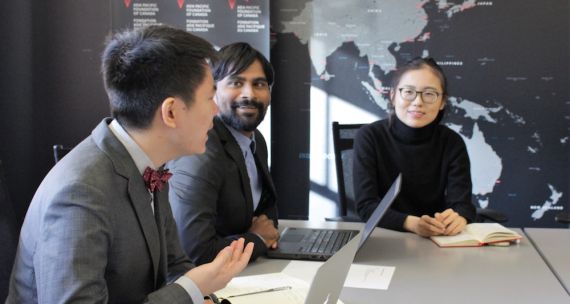The countdown is on to the third Asian Business Leaders Advisory Council (ABLAC 2018) meeting taking place this year in Toronto on March 2. ABLAC brings together a high-level group of Asian and Canadian business leaders who meet annually to discuss opportunities for improved Canada-Asia business engagement. In addition to strategizing how to deepen and diversify Canada's relations in Asia, discussions this year will also focus on the rapid rise in the economic and diplomatic clout of countries with large populations of millennials (aged 18 to 35), such as India, China, and Indonesia – and how young Canadians can best prepare for this new reality.
On both sides of the Pacific, the 'youth bulge' demographic shift is driving millennials to become the largest demographic in the global workforce by 2020. For the first time in history, millennials will outnumber all other generations, becoming the cohort that will guide us into the future. But without a better understanding of the diverse needs of this generation in Canada and the Asia Pacific, the future development of global thinking on collaboration, innovation, and world issues is not guaranteed. ABLAC leaders are poised to shape the conversation in Canada and Asia, and, more importantly, to tell the younger generation why the relationship between the two regions matters.
Currently, millennials in the Asia Pacific comprise 45 per cent of the world population – a number that is expected to rise to approximately 60 per cent by 2020. Asia's millennials are not only a rapidly growing demographic cohort, but are also becoming an increasingly important group as their wages increase and their purchasing power grows. Millennials in places such as India, China, and Indonesia are poised to become the largest populations within the region, and the desires and interests of these millennials will have a major impact on global consumption and future consumer trends.
At home, Canadian millennials are also becoming an increasingly important generational cohort that will outnumber the baby boomers in the 2019 federal election. Already, millennials are the largest generation in the Canadian workforce, and this generational shift coincides with important strategic developments. Canada, which is also the second-largest player in the Comprehensive and Progressive Agreement for Trans-Pacific Partnership (CPTPP), is becoming an increasingly attractive destination for business, tourism, and immigration. Asia and its wealth of opportunity are becoming part of this conversation, but Canadians will still need to become more familiar with the world's largest and fastest-growing continent.
On both sides, the potential for cross-cultural dialogue is untapped. Expanded action between Canadian millennials and their peers in Asia requires a long-term strategy in which governments in Canada and Asia recognize that millennials' genuine interest in our world needs to be cultivated through more strategic opportunities that allow the youth of today to engage as the business people, politicians, and leaders of tomorrow.
A vital component of this strategy is programs to foster more global networking. In their leadership roles in business, ABLAC members can help create new opportunities for more international exchanges, internships, and employment opportunities for Canadian youth in Asia, and Asian youth in Canada. A millennial cohort without a proper understanding of Canada and Asia's increasing global presence means missed entrepreneurial opportunities in rising sectors such as clean-tech, health care, and financial technology, to name a few.
ABLAC business leaders must also encourage their governments to prioritize this younger generation and play a proactive role in encouraging millennials to go abroad. An important part of this message is the need for business leaders to reaffirm that the strategic relationship of Canada and Asia is a long-term reality. This way, when counterparts in Canada and the Asia Pacific meet, they can have real discussions around education, the environment, the economy, and world politics.
In the long term, a crucial element of this strategy is the development of education systems that build a foundation of knowledge about Asia and Canada, stimulate curiosity about the world on the other side of the Pacific, and spark a desire to seek diverse international experiences. Seeking these opportunities now will allow future graduates the opportunity to engage and think critically as contributing members of the global workforce. Building a stronger understanding between Canada and Asia at an early stage will create the environment that equips youth with the skills and knowledge they will need to embrace the opportunities of the future.
At the moment, some of the most significant changes in history are happening as millennials are groomed to become our future leaders. While the world is contending with great uncertainty in terms of geopolitics, rising sentiments of nationalism, and economic ambiguity, the 'Asian century' points to significant opportunities for youth outside traditional channels. Canada can play a key role in this narrative, but only if it is willing to show the generation of tomorrow that its actions speak louder than its words.
ABLAC 2018 to Factor Youth into Strategy for the Future
The views expressed here are those of the author, and do not necessarily represent the views of the Asia Pacific Foundation of Canada.




